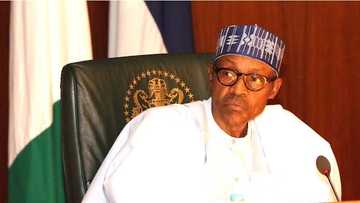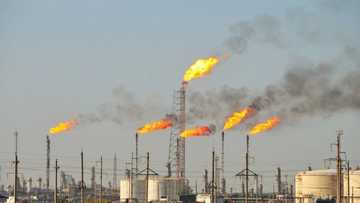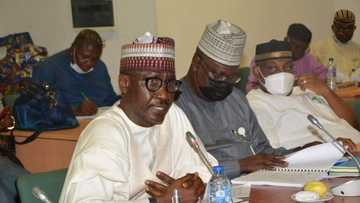N6 Trillion Fuel Subsidy: Customs Comptroller General Faults Payment, Gives Reasons
- The N6 trillion fuel subsidy payment by the Nigerian National Petroleum Corporation has been faulted
- The comptroller general of Nigerian Customs Services, Hameed Ali said that the 98 million litres of fuel daily consumption rate in Nigeria cannot be substantiated scientifically
- According to Ali, excess fuel released daily for consumption finds its way out of the country to the benefit of a few individuals
PAY ATTENTION: Click “See First” under the “Following” tab to see Legit.ng News on your Facebook News Feed!
Hameed Ali, the comptroller general of Nigerian Customs Services, has faulted the planned payment of N6 trillion as a subsidy on Premium Motor Spirit (PMS) in the 2022 fiscal year by Nigerian National Petroleum Corporation (NNPC) Limited.
Tribune reports that Ali said this while defending the NCS presentation on the 2023-2025 Medium Term Expenditure Framework (MTEF) and Fiscal Policy Paper (FSP) at the National Assembly on Thursday, September 1.

Read also
Incoming ‘sapa’: Buhari govt’s debt profile hits N41.6tr, economists advise caution over reckless borrowing

Source: Twitter
At the presentation chaired by Honourable James Faleke, the NCS CG warned that the 98 million litres of fuel daily consumption rate in Nigeria allegedly being claimed cannot be substantiated scientifically.
He also warned that over 38 million litres of fuel released daily in excess of actual consumption into the Nigerian market finds their way out of the country.
PAY ATTENTION: Subscribe to Digital Talk newsletter to receive must-know business stories and succeed BIG!
His words:
“The over N11 trillion we are going to take as debt, more than half of it is going for subsidy. The issue is not about smuggling of petroleum products. I have always argue this with NNPC.
“If we are consuming 60 million litres of PMS per day by their own computation, why would you allow the release of 98 million litres per day? If you know this is our consumption, why would you allow that release?

Read also
CSOs, NHRC interface over implementation of rights protecting communities from environmental hazards
“Scientifically, you cannot tell me that if I fill my tank today, tomorrow, I will fill the same tank with the same quantity of fuel. If I am operating a fuel station today and I go to Minna depot, lift petrol and take it to Kaduna, I may get to Kaduna in the evening and offload that fuel.
“There is no way I would have sold off that petrol immediately to warrant another load."
Fuel subsidy bill growing faster than Nigeria's economy, group raises alarm
The Nigerian government had been urged to work towards improving the availability of petroleum products to citizens and motorists alike.
This call was made by a civil society organisation during a press conference on the issues in the oil and gas sector, especially fuel subsidy removal.
According to the group, the federal government must prioritise the rehabilitation of all refineries in the country before fuel subsidy removal is implemented.

Read also
NNPC lists out roles of churches, mosques in crude oil theft, plans Saudi Arabia model to ensure it stops
Petroleum minister reveals Buhari's position on the removal of petrol subsidy
Also, the minister of state for petroleum, Sylva, reacted to reports of President Buhari's plan to remove the subsidy on petrol.
Sylva revealed that Buhari is not in support of the removal of subsidy on petrol at this time.
According to him, the complete removal of subsidy is not on the federal government's plate, saying they plan to complete consultations before coming out with a clear policy direction on the matter.
Source: Legit.ng

